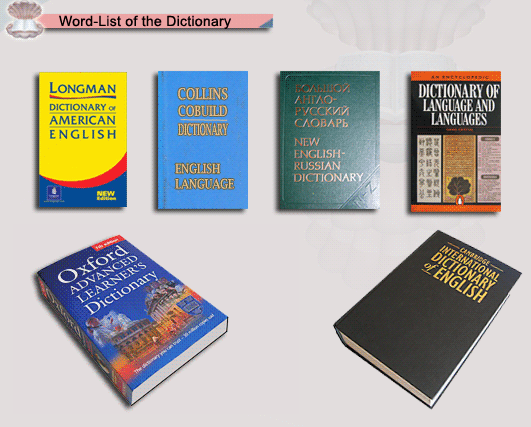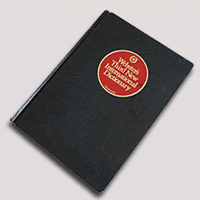
As mentioned in the history of the dictionary, the primary goal of creating the "English-Georgian Dictionary" was to translate English-language literature, both fiction and scientific, into Georgian.This task defined a maximalist approach to the compilation of the vocabulary of the dictionary, which includes the most frequently used words of the Modern English language, as well as rare, archaic and obsolete lexis. The latter is needed by a translator who translates literature of different epochs. The task of translating English-language scientific literature into Georgian determined the inclusion of terminology of many domains in the dictionary. Terminological entries are added to the „Comprehensive English-Georgian Online Dictionary” till today.
At the initial stage of editing the dictionary, the editors used the following sources for editorial purposes:
 “Oxford English Dictionary on historical principles” “Oxford English Dictionary on historical principles”
- “The New English-Russian Dictionary” (editor-in-chief I. Galperin)
- Webster’s Third New International Dictionary
- Less comprehensive publications of Oxford, Webster, Cambridge
The editors applied to the said dictionaries in order to define the precise meaning of each English word or each polysemous meaning of a word. Collocations, phraseological units, phrasal verbs were looked up not only in the abovementioned lexicographic sources but also in phraseological and other specialized dictionaries.
Each entry of the Dictionary includes grammatical, lexical and stylistic characteristics of the word in question. The dictionary applies temporal labels (obsolete, archaic), regional labels (American, Australian, Canadian, etc.), stylistic labels (informal, literary, formal, vulgar, slang, etc.), subject labels (see Specialist Terminology).
To the fullest extent possible, the dictionary entries reflect polysemous meanings of English words, including their archaic and obsolete meanings, also collocations, phraseological units, etc.
 Following the development of the Internet in Georgia, the editors included the British National Corpus in their editorial work, and for the last ten years, they have been actively using Sketch Engine, its corpora and software tools. Following the development of the Internet in Georgia, the editors included the British National Corpus in their editorial work, and for the last ten years, they have been actively using Sketch Engine, its corpora and software tools.
|











